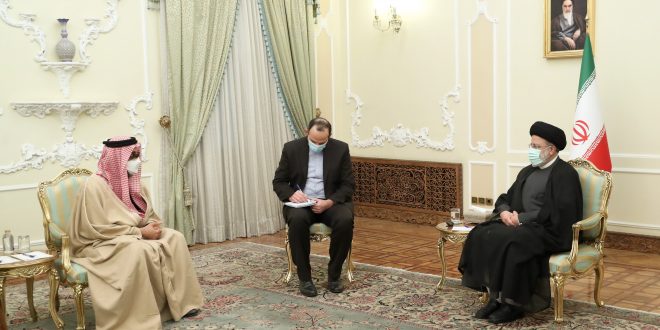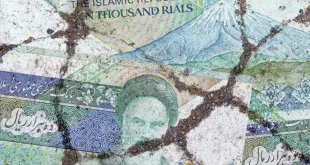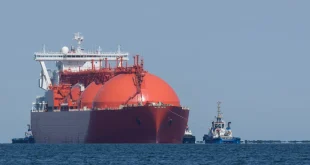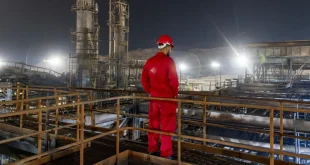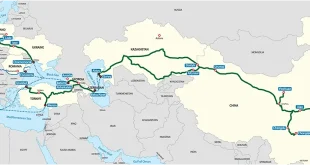Water crisis in the Persian Gulf presents a multifaceted challenge, as it plays a critical role in climate adaptation and mitigation, environmental damages and conflicts in the region. The varying water scarcity challenges among Gulf countries raise questions about how it will affect their collective efforts against water scarcity.
As COP28 approaches, the UAE’s Ministry of Foreign Affairs (MOFA) has stated that it is a great opportunity for the UAE to focus on water security.
An exclusive statement provided by MOFA leading up to COP28 stated, “COP28 aims to give unprecedented attention to water risks and opportunities across the agenda. Our goal is to seek to drive forward progress and raise ambition. Furthermore, the UAE recognizes the importance of ensuring water security and sustainability.”
This follows a recent announcement of the UAE’s release of a comprehensive discussion paper outlining the imminent threat to water accessibility and calling for a coordinated global response and action against water scarcity. Water policy is expected to be among the top priorities of this year’s discussion at COP28.
Experts believe that water scarcity in the Persian Gulf is an opportunity for broader regional diplomacy, including within Iran and the UAE.
Water crisis in the Persian Gulf
Arab countries along the Persian Gulf lack alternative water sources, which means they rely heavily on desalination for their freshwater supply. According to the Middle Eastern Institute, it is estimated that over 850 desalination plants are currently under operation on the Arabian side of the Persian Gulf.
Based on a report by Robert Mogielnicki on desalination in the UAE, he stated “Desalination in general discharges large quantities of heat and hypersaline brines, causing the coastal seawater to become saltier, posing an extreme threat to marine life and also the cost-effectiveness of desalination. Traditional desalination plants in the UAE are powered by natural gas, contributing to one-third of the UAE’s greenhouse gas emissions”.
As the host of COP28, MOFA stated, “The UAE works steadfastly to meet its net-zero targets; decarbonizing the water sector is of paramount importance.” In this regard, the UAE is moving towards sustainability. The Water Security Strategy 2036 aims to reduce CO2 emissions associated with water desalination by 100 million metric tons.
The UAE adopted its Water Security Strategy 2036 in 2018, aligning with the WHO and the UAE’s vision to achieve prosperity and sustainability. The strategy’s objective is to reduce the total demand for water resources and increase water productivity during both normal and emergency conditions, which will last for two days under normal conditions.
Najmedin Meshkati, a professor of engineering and international relations at the University of Southern California, observes, “The source of water and their safety and security are interdependent with the state of relations between the Arab Gulf states and their northern neighbor Iran.”
According to Dr. Shokri, an Iranian senior energy strategist and foreign policy advisor, Climate change has exhausted the means through which Iran can replenish its water demand. Excessive droughts, reduced rainfall, and increasing temperatures exacerbated the water crisis in Iran.
Iran’s inability to tackle the looming water crisis stems from U.S. sanctions and poor water management policies. In Iran’s defense, the economic sanctions are blocking Tehran from water and climate engagement.
Dr. Shokri added, “The Arab Gulf states are focusing on sustainable development and are navigating towards net zero, whereas Iran is refusing to move towards sustainability because of US sanctions. The shared ecology of the Persian Gulf means Iran’s upscaling of cheaper and less efficient desalination technology will negatively impact the Arab countries on the southern shores of the Persian Gulf, including the UAE.”
Desalination in the Gulf region
Desalination is found to be a long-term, reliable, and sustainable freshwater source for the UAE. The UAE gets 90 percent of its potable water from the 70 major desalination plants, accounting for 14 percent of the world’s total production of desalinated water, as per the report by Robert Mogielnicki
The UAE is further exploring alternative options for a more sustainable approach to reduce carbon emissions and scale up energy-efficient and environmentally friendly desalination technology through its renewable resources, such as solar and geothermal energy.
The Arab Gulf states, holding the financial and technological power, are planning a massive expansion of over $100 billion on destination projects, which will have minimal impact on the environment. However, Iran cannot afford these latest desalination technologies and is late to desalination.
Referencing to Iran’s move towards desalination, Dr. Shokri stated “Iran’s increasing use of outdated, energy and emissions-intensive desalination technologies is touted as a silver bullet for its water challenge.” Tehran is transferring desalinated water from the Persian Gulf to the water-ridden heavy industries in the central provinces, an environmentally and financially challenging solution to its water problem.
Dr. Shorkri also identified that Iran’s lack of climate action plan and preliminary plan to solve its water shortage means that the UAE will also face the environmental repercussions of Iran’s failure towards sustainable development, regardless of its efforts towards sustainable development goals, in the next decade.
US sanctions and water security
Iran’s climate negligence and water challenges are not just subjected to Iran’s domestic issues. It has long-term implications, both on the regional and international stage.
The recent normalization between the UAE and Iran creates a new opportunity for water and climate cooperation, as they are tasked with ensuring long-term domestic water security, protecting regional mutual interests, and minimizing the environmental repercussions of the Persian Gulf.
According to Dr. Shokri, water and climate diplomacy might not be sufficient to establish water security in the region.
“It will be difficult to solve the water crisis in the region with just active water diplomacy between Tehran and Abu Dhabi. If Iran wants to use water diplomacy with the UAE better, it has to solve its problem with the West. It is more crucial for the UAE to mediate a tailored sanction or assist in lifting the sanctions so that Iran can pick itself up,” he stated.
Mohammad Bagher Ghalibaf, a speaker of Iran’s Parliament and a former senior commander of the Revolutionary Guard, told the Iran International Newsroom that the Iranian government should coordinate better with private firms “outside Iran”, especially with the UAE, to break out of the sanctions.
As a forerunner of sustainability and climate action in the Gulf, the UAE negotiating the tailoring and neutralizing of Iran’s harsh economic sanctions with the US becomes imperative for the progress of climate action and water security strategy in the Persian Gulf region.
COP28 and the UAE’s latest discussion paper on water scarcity are believed to serve as momentum for pressure towards the urgency of fulfilling climate accords by the parties. It is critical for facilitating investments and sharing technologies to bridge the gap in water resources projects and manage the rising water and climate threats in the region.

